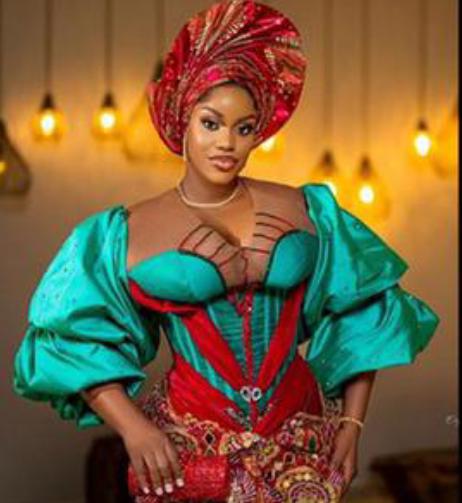
“I Would Never Say Marriage Is Not a Flex in a Serious Conversation” — Eriata Ese Clarifies Viral Comment

Reality TV star Eriata Ese has found herself in the middle of yet another online controversy after being accused of downplaying the importance of marriage. A statement credited to her—“marriage is not a flex”—went viral on blogs, sparking widespread criticism. Many fans and critics accused her of mocking one of society’s most respected institutions, but Ese has now clarified that the remark was taken out of context.
In a lengthy Instagram post, Ese made it clear that she would never seriously dismiss marriage. “Please ignore bloggers,” she wrote. “I would never say ‘marriage is not a flex’ in a serious conversation. I grew up in a loving home and I know how important family is.” She further explained that she is a lover of relationships and often shows that side of herself online, pointing out her frequent use of the hashtag #lovergirl.
According to her, the viral comment was nothing more than light-hearted banter with her followers. “This is me only creating engagement on my post and cruising with my followers which I always do,” she explained. “Only a damaged person will say a good marriage is not a flex. I know how exciting it feels to be in a healthy relationship; it’s like a dream come true coming home to someone who doesn’t joke about you.”
Despite her explanation, not everyone was convinced. Some social media users insisted she was only backtracking because of the backlash. One critic bluntly told her, “I hope you’re married, giving multiple births outside marriage is not a flex.” Ese, known for her bold clapbacks, responded with humor when asked who the father of her child was, jokingly saying, “God is the daddy.”
The exchange only fueled the fire, with some accusing her of dodging accountability, while others praised her for handling criticism with wit. The episode exposed once again the cultural divide between traditional expectations of marriage and modern views of love and family.
Eriata admitted she was only trying to create engagement with her followers, not start a cultural debate. But in the age of gossip blogs and viral screenshots, the line between playful banter and serious commentary is razor-thin. “I mind my business and stay away from anything that will put me in the blog for any negative narrative,” she wrote. “But it seems like it’s almost unavoidable.”
Her clarification underscores the struggle many public figures face: the pressure to entertain their followers while carefully guarding their reputation. A single comment—whether serious or not—can quickly become the subject of nationwide debate.
Beyond the personal drama, the controversy points to how deeply rooted marriage is in Nigeria’s cultural and social fabric. To call it a “flex” or otherwise is not just casual talk—it touches on values, identity, and respectability. Ese’s insistence that “only a damaged person will say a good marriage is not a flex” shows her awareness of this weight and her desire not to be misunderstood.
Her clarification also reflects the changing dynamics of modern womanhood. For some, personal happiness and self-defined family structures matter more than meeting societal expectations. For others, marriage remains the ultimate badge of honor. Ese’s predicament shows just how difficult it is to balance both perspectives under the public gaze.
In the end, Ese’s viral comment may have been nothing more than “cruise,” but the reactions it provoked prove just how powerful words can be when shared online. Whether her clarification is seen as genuine or strategic, it has once again placed her at the center of conversations about love, family, and societal values.
And while she firmly insists she would never say “marriage is not a flex in a serious conversation,” the intensity of the debate shows that, for many, the subject of marriage will always be a serious one—whether online or offline.


